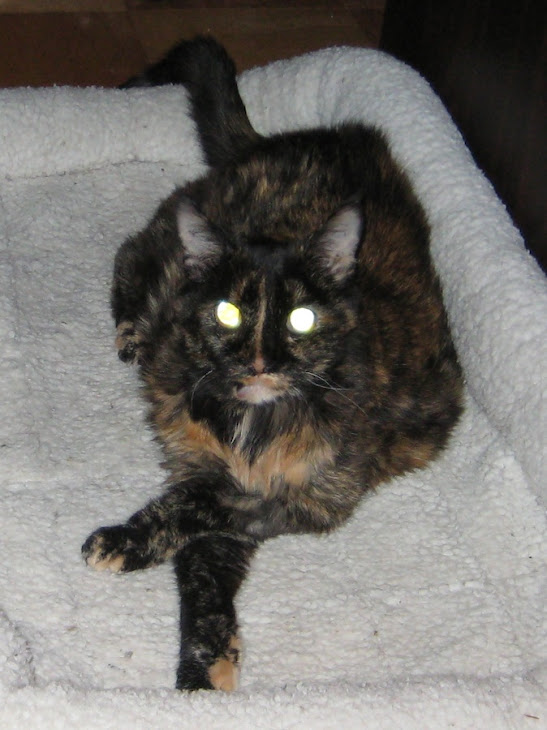 Cold winter days are even reaching down into Florida this year...and it's not technically even winter yet! Keep your cats safe during these freezing winter nights by heeding these tips:
Cold winter days are even reaching down into Florida this year...and it's not technically even winter yet! Keep your cats safe during these freezing winter nights by heeding these tips:- If the thermometer is dipping below freezing, your cats belong inside with you. Ferals who won't come inside can be cozy with a heated bed, of which we have several options at OldMaidCatLady.com. Just make sure that bed is safe for outdoor use. One cold winter, I even saved a feral with a common cardboard box that had the top cut so it could act as a flap. It sat on my front balcony, which was covered so it didn't get wet. Inside, I put an old wool blanket. That cat lived in that box all winter long! He even stopped by more than a year later, sporting a collar, to thank me and let me know he'd found a home.
- Short-haired or hairless cats get cold in winter, so they need a sweater! While there aren't many made specifically for cats (but I'm looking!), you can usually find a dog sweater that will fit your kitty. If yours won't tolerate catwear, at least provide a nice warm blanket into which he can snuggle. Many heated beds are also made for indoor use, as well.
- Take care when changing your antifreeze or adding new antifreeze to your car. If you spill any, immediately wipe it up. Antifreeze is deadly to cats; it will shut down their kidneys within hours of being ingested. And yet it smells good to them, so they'll usually try a taste. There is an antidote, but it must be administered within the first 3 hours to avoid "cat-"astrophe. Or you could try one of the pet-safe antifreezes that are sometimes available in your local auto supply store.
- Speaking of cars, their engines can be a tempting warm place for outdoor cats to sleep when it's cold. If you have ferals in your neighborhood, it's a good idea to knock on the hood or honk your horn before starting the car in cold weather to rouse any kitties snoozing in your engine compartment. Sure, it's a rude awakening, but not as much so as having a leg torn off by a suddenly-moving belt! And unplanned trips to the emergency vet can ruin the best of days.
- Make sure your kitties have plenty of fresh water available during this dry season. You know how the dry, heated air makes you feel dehydrated? It does the same to your cats. If their water bowl is outside, make sure it won't freeze; cats' tongues can stick to ice in freezing conditions, just like a human's! (Remember the schoolyard scene in the movie A Christmas Story?) A recent story about a kitten rescued after being found frozen to an icy sidewalk points out the danger of cats trying to drink frozen water in winter.
- If you're feeding your cats canned food that's been in the fridge, it's much more palatable if it's heated for a few seconds in the microwave. I find that about 10 seconds usually takes off the chill. It helps bring out the aroma of the food for older cats, as well. (Make sure your cat bowls are microwave-safe before using them there.)
Next time: dangers of the holiday season.








No comments:
Post a Comment